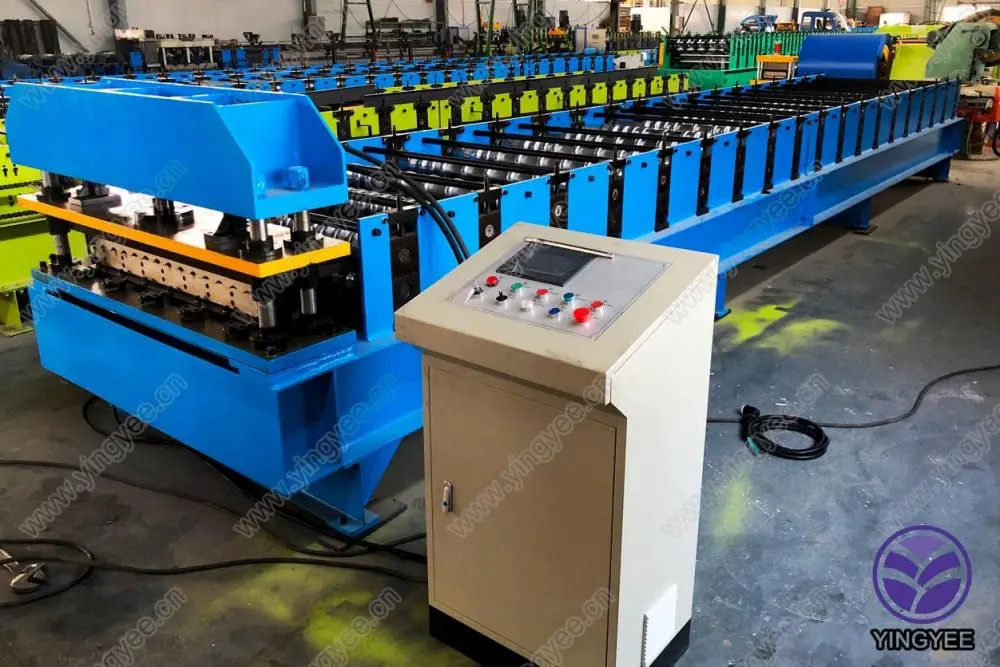
The Roof Panel Machine An Overview of Its Importance and Functionality
In the modern construction industry, efficiency and quality are paramount. Roofing, one of the most critical components of any building, demands precision and durability. This is where the roof panel machine comes into play. These machines are designed to manufacture high-quality roofing panels with varying specifications, catering to the diverse needs of the construction sector.
Understanding Roof Panels
Before delving into the technology behind roof panel machines, it's essential to understand what roof panels are and why they are important. Roof panels come in various materials, including metal, fiberglass, and asphalt. They provide essential protection against weather elements, insulation, and aesthetic value to buildings. The choice of roofing material significantly influences the lifespan and energy efficiency of a structure.
The Role of Roof Panel Machines
Roof panel machines automate the manufacturing process, which not only streamlines production but also enhances quality control. These machines are capable of producing standardized panels that meet specific building codes and standards. By utilizing advanced technology, roof panel machines can create panels with intricate designs, tailored dimensions, and superior thermal insulation properties.
Key Features of Roof Panel Machines
1. High Precision One of the primary features of roof panel machines is their ability to produce panels with high precision. This is crucial as even minor deviations in size or shape can lead to significant issues during installation.
2. Versatility Modern roof panel machines can handle a variety of materials and thicknesses, making them versatile tools in the roofing industry. Whether it’s metal sheets or composite materials, these machines can adapt to meet various production requirements.
3. Speed and Efficiency The automation of the production process significantly increases the speed of manufacturing. A roof panel machine can produce large quantities of panels in a fraction of the time it would take manual labor. This efficiency translates into lower costs and faster project completion times for contractors.

4. Customizable Production Many roof panel machines offer customization options, allowing manufacturers to produce panels according to specific client needs. This could include different colors, finishes, or insulation specifications.
5. Durability and Reliability Roof panel machines are built to withstand rigorous production demands. Most are equipped with robust components that ensure reliability over long production runs, minimizing downtime and maintenance needs.
The Process of Roof Panel Production
The production process typically begins with the selection of raw materials. The chosen material is then fed into the roof panel machine, which shapes, sizes, and modifies it according to predefined specifications. Key steps often include rolling, cutting, and profiling. The end product is then inspected for quality assurance before being packaged for delivery.
Environmental Considerations
In recent years, there has been a growing awareness of the need for environmentally friendly construction practices. Roof panel machines have evolved to incorporate sustainable manufacturing processes. Many manufacturers utilize recycled materials in their panels or produce panels designed to enhance energy efficiency. This shift not only appeals to eco-conscious clients but also helps meet increasingly stringent building regulations.
Conclusion
The roof panel machine is an essential asset in the construction industry, contributing to the efficient, high-quality production of roofing materials. With its ability to deliver precision, versatility, and sustainability, it addresses the pressing demands of modern architecture. As technology continues to advance, we can expect roof panel machines to evolve further, introducing innovative solutions that enhance the quality, sustainability, and efficiency of roofing systems.
In summary, investing in roof panel machines can lead to significant benefits for manufacturers, contractors, and ultimately, the end-users of the buildings. They not only contribute to faster construction times but also ensure that the roofs we rely upon are strong, durable, and environmentally responsible. As the construction landscape continues to change, these machines will play a pivotal role in shaping the future of roofing solutions.